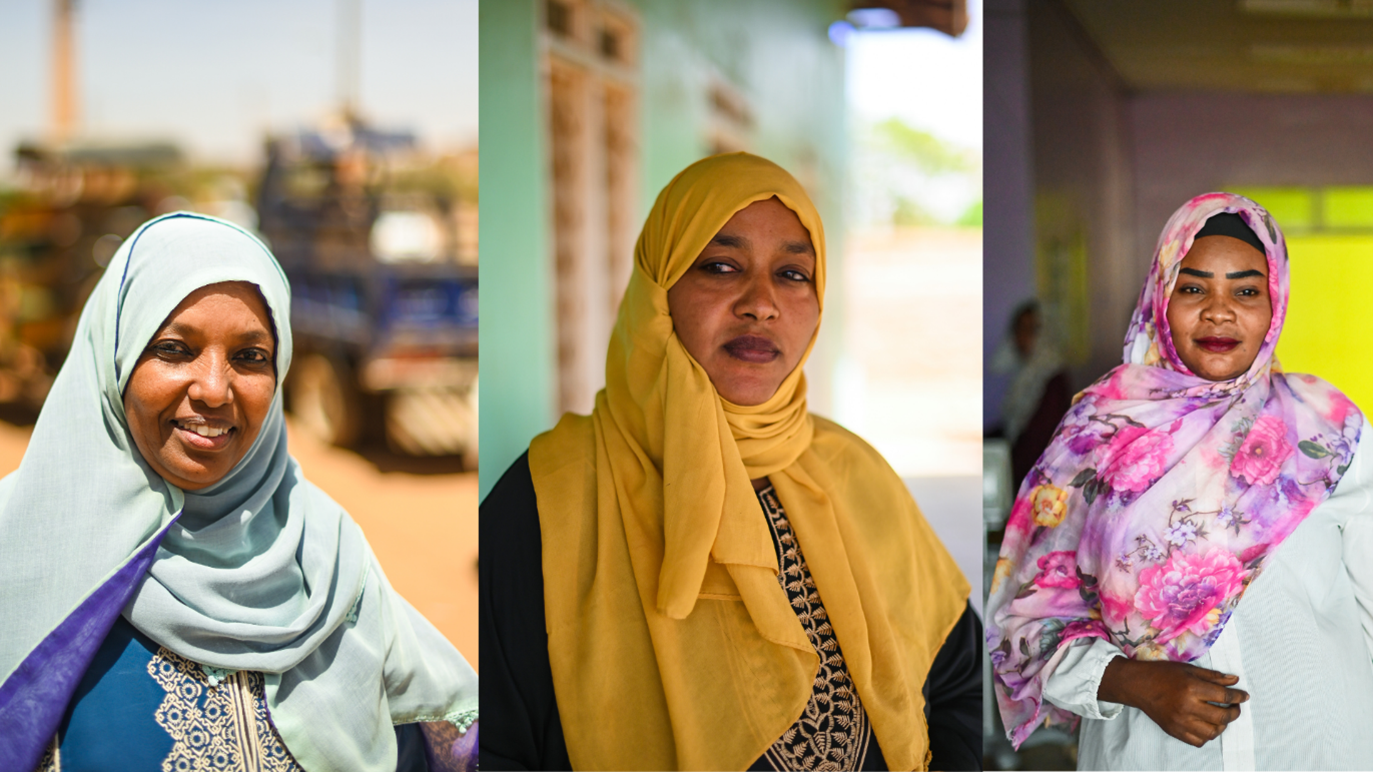 In Khartoum, health workers Sana, Saffa and Hagir prepare for Sudan’s March 2023 polio campaign, aiming to make a positive impact on community health
In Khartoum, health workers Sana, Saffa and Hagir prepare for Sudan’s March 2023 polio campaign, aiming to make a positive impact on community health
16 522 vaccinators go door to door to protect 8.9 million children, in the first round of Sudan’s 2023 national polio vaccination campaign
23 March 2023 – Less than 6 months after closing the 2020 outbreak of circulating variant poliovirus type 2, in December 2022 Sudan declared a new polio outbreak following an importation of the virus. As the Federal Ministry of Health and partners began the work of planning an outbreak response, it became apparent that the efforts exerted to strengthen Sudan’s health care system, both during the 2020 outbreak response and after, are still paying dividends.
Sudan’s Federal Ministry of Health collaborated with partners in country and within the Global Polio Eradication Initiative to implement a comprehensive outbreak response plan that encompassed 2 rounds of high-quality door to door vaccination campaigns. The response plan for the 2022 outbreak built on the lessons learned and changes made in over the course of the last outbreak response and official outbreak closure in August 2022 – developments that have left Sudan better equipped than ever to safeguard the health and well-being of its children.
The first round of the polio campaign, running from 18 to 21 March 2023, saw vaccinators go door to door across the entire country, including in some particularly challenging and complex geographies, to reach and protect an estimated 8.9 million children under 5 with oral polio vaccine and vitamin A supplements. In a context like this, where the Ministries of Health at federal and state levels and their partners had succeeded in stopping transmission so recently, the mood among those designing and delivering the response wasn’t despair that the country was dealing with a new outbreak, but optimism.
"Facing this outbreak with determination and preparation, we will overcome it just like we overcame previous outbreaks,” said Ismael Suleiman Aladani, Expanded Programme on Immunization (EPI) Manager, Federal Ministry of Health, Sudan.
The strength of Sudan's public health workers
As Sudan launched its 2023 response, a vast cadre of skilled and experienced health workers stepped up to the challenge, determined to protect the next generation from the devastating effects of polio.
"At the World Health Organization, we wholeheartedly believe in the power of frontline workers. Even with the challenges faced in Sudan, there remains a strong foundation for a robust routine immunization system. Once you empower these frontline workers, they are the most crucial factor in a successful campaign. After all, they are the ones delivering lifesaving drops to each and every child in need,” said Dr Ni’ma Saeed Abid, WHO’s representative in Sudan.
The power of collaboration
The 2023 outbreak response highlights the need for strong coordination and to mobilize resources as efficiently as possible.
"One of the great lessons learned in the last outbreak was that partnership can make a difference during the outbreak response,” said Dr Mohammad Taufiq Mashal, Medical Officer at the WHO Sudan Country Office.
Sudan’s outbreak response is led by the Federal Ministry of Health with strong coordination and support from WHO and UNICEF, the Global Polio Eradication Initiative partners and OCHA. A culture of collaboration between all partners has been essential for overcoming the challenges that emerged in the last outbreak response, and for responding quickly and effectively to new ones. New challenges are likely to emerge over the course of the 2023 campaign response, but with partners committed to collaborating and learning from them, future vaccination responses – for poliovirus and other diseases – will be more effective.
The importance of continued vaccination efforts
Polio outbreaks emerge when there are immunity gaps, and the 2023 campaign aims to build on previous progress towards closing those gaps, further strengthening Sudan's vaccination processes and guaranteeing that every child under 5 is protected from the poliovirus.
In addition to campaign efforts, routine immunization, now more commonly referred to as essential immunization, plays a crucial role in maintaining the health of Sudan’s children. Under the country’s national routine immunization schedule, children receive 2 doses of inactivated polio vaccine (IPV), which protect against all 3 types of polio, and 4 doses of bivalent oral polio vaccine (bOPV bolsters immunity to types 1 and 3 of the virus) helping children remain free from the devastating effects of this debilitating disease.
It is important for parents, caregivers and health workers to understand that essential immunization and supplementary immunization activities aren’t an ‘either/or’ but are two complementary interventions that work together to protect children. Throughout the world, essential immunization gives children the foundation of immunity they need to fight off vaccine-preventable diseases like polio in typical circumstances, and when the risk of contracting polio is higher, that foundation gets a boost from supplementary immunization activities like the one Sudan is doing now.


